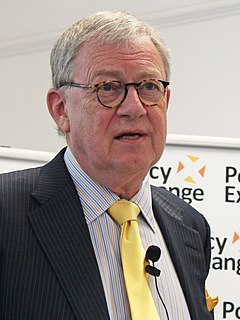A Quote by Thomas Sowell
The whole idea of equal justice under law is completely incompatible with the idea of judges deciding cases according to "empathy".
Related Quotes
Obama's attitude toward the rule of law is apparent in the words he used to describe what he is looking for in a nominee to replace Justice David Souter. He wants 'someone who understands justice is not just about some abstract legal theory,' he said, but someone who has 'empathy.' In other words, judges should decide cases so that the right people win, not according to the rule of law.
The public welfare demands that constitutional cases must be decided according to the terms of the Constitution itself, and not according to judges views of fairness, reasonableness, or justice. I have no fear of constitutional amendments properly adopted, but I do fear the rewriting of the Constitution by judges under the guise of interpretation.
The idea is that to grasp an idea like equality or justice, you can't look at the equal and just or unjust things in the world around you, you have to somehow ascend to or maybe remember some kind of idea of equality and justice and this would be a Platonic form, and it would be different from the things that partake in the form.
I think the very idea of character, of developing not just grit, but empathy and curiosity, emotional intelligence - you know, the things that I want my own daughters to develop - the idea that we're going to get there through rewards and punishments seems completely at odds with the idea of character itself.
When I was a prosecutor in Kansas City, my job was to fight for justice and safety for all citizens in my community. Equal access to justice under the law is an American value embedded in the fabric of our legal and political system - the idea that anybody, powerful or not, can have their day in court.
No matter what someone else has done, it still matters how we treat people. It matters to our humanity that we treat offenders according to standards that we recognize as just. Justice is not revenge - it's deciding for a solution that is oriented towards peace, peace being the harder but more human way of reacting to injury. That is the very basis of the idea of rights.




































